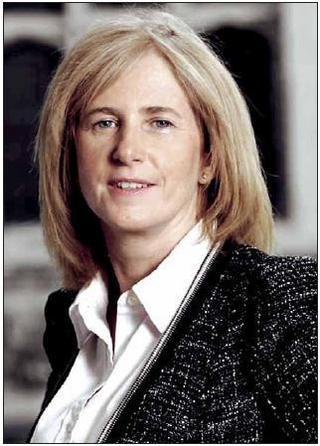www.zfenglish.com - Last update 16:01
New BAT Romania GM: You Have To Keep People Alert To Eliminate Routine
03.16.2012
Appointed to the helm of British American Tobacco Romania, Gemma Webb has become the first woman to run a local cigarette manufacturer.
"I was very happy to accept this job. Romania is a country where any general manager would want very much to work," says Gemma Webb, the new general manager of British American Tobacco Romania (BAT), the largest fast moving consumer goods company on the local market.
The main reason why any executive within the multinational would want to run the local subsidiary is that "Romania is one of the best-performing markets for British American Tobacco," says Webb, who has replaced David Waterfield.
The company's share of the local market exceeded 50% last year both in value and in volume, is larger than those of its main rivals, Philip Morris Romania (PMI), whose brands include Marlboro, L&M and Virginia Slims, and Japan Tobacco International Romania (JTI), which manufactures Winston, Camel, and Winchester.
Over the last decade, year after year, each of the general managers that have been at the helm of BAT boasted record results and were then promoted, writes BUSINESS Magazin weekly.
At present the company has a solid position on the market, so Gemma Webb's term in office could prove somewhat more difficult, if she wants to boost market share.
At the beginning of the term, any manager has an objective, and Webb says hers is a "very clear" one, "to keep the company's growth potential, fight against contraband, with a strong and dedicated local team."
Gemma Webb has been working within BAT for 11 years, having previously been trade marketing & distribution manager for Western Europe for a short while, after which she became general manager for the UK and Ireland.
Having been installed as manager in offices of Bucharest Business Park, less than one hour away from the company's plant in Ploiesti, the new manager has a clear picture of the company's Romanian business.
She herself admits that the "challenge in Romania is the company's leading position. It's not bad to be number one, but the effort to retain that position is considerable."
On the other hand, it was also hard for her predecessor, David Waterfield, to keep up the growth rate, as he was in charge of the south-eastern area of Europe.
This meant that many subsidiaries in the area - Bulgaria, Serbia, Kosovo, Albania and Montenegro - were overseen from the Bucharest offices, but now the company has been reorganized, and the managers in Bucharest no longer have regional responsibilities.
When he came to Romania, David Waterfield said in his first interview that a general manager can reap the benefits of their strategy only after about a year in office.
Largest market in FMCG industry
BAT Romania posted a EUR1.14 billion turnover in 2010, and, although the company's representatives did not wish to comment on last year's financial results, the turnover of the leader of the cigarette market went up last year, considering that illicit sales were down and the company's market share exceeded 50% last year, out of an estimated total of EUR3 billion.
The cigarette market is the largest in the FMCG industry, worth an estimated EUR22 billion per year. And whereas in the case of other shopping items Romanians were willing to migrate to cheaper products to save money, they don't follow the same pattern when it comes to cigarettes.
Quite the opposite, many smokers in Bucharest and other major cities go for the higher price segments.
So, does the new head of the cigarette maker have something up her sleeve?
Gemma Webb says she plans to keep people "attentive and alert" to eliminate routine.
She believes her main area of expertise is human resource management and does not feel connected to one particular country, but to the "diversity of the markets where I have done business." She says she doesn't recall any failure and likes to think of herself as someone focused on problem solving.
At least two burning issues have been on the list of concerns of top executives in the past few years. One of them has been the booming contraband, which two years ago exceeded 36% of the market; in the meantime, the level is down to 13%. The second thorny issue was the accelerated rise of the excise, which in fact was a fertile ground for illicit sales and practically led to a doubling of cigarettes' shelf prices.
In fact, in 2009 cigarette prices went up 50%, which was the biggest price increase of that year and the main reason for the Romanian central bank missing its inflation target, according to the BNR.
(English version by Daniela Stoican)

